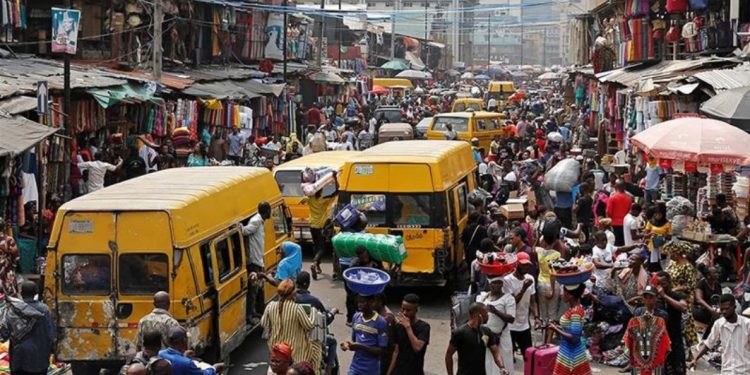As Nigeria continued to pile up debts in 2021, the fiscal authority had its job cut out for it in 2022– raise more revenues to finance budgets or continue to borrow and pile up debts for generations.
The latest data from the Debt Management Office on Nigeria’s public debt stock as at March 31, 2021 showed that the total public debt stock which comprised the debt stock of the Federal Government of Nigeria (FGN), thirty-six (36) state governments and the Federal Capital Territory (FCT) stood at N33.107 trillion or $87.239 billion and climbing. The Debt Stock also includes Promissory Notes in the sum of N940.220 billion issued to settle the inherited arrears of the FGN to state governments, oil marketing companies, exporters and local contractors. Compared to the Total Public Debt Stock of N32.916 trillion as at December 31, 2020, the increase in the Debt Stock was marginal at 0.58%.
Further analysis of the public debt stock, shows that the increase was in the domestic debt stock which grew by 2.11% from N20.21 trillion in December 2020 to N20.637 trillion as at March 31, 2021. The FGN’s share of the Domestic Debt includes FGN Bonds, Sukuk and Green Bonds used to finance infrastructure and other capital projects as well as the N940.220 billion Promissory Notes. External Debt Stock declined from $33.348 billion as at December 31, 2020 to $32.86 billion due to the redemption by Nigeria of the $500 million Eurobond in January 2021.
Which the rising debt position of Nigeria and the FG’s proposal to borrow about N6.26 trillion (both local and foreign) debts to finance the 2022 estimated budget deficits, analysist have expressed worry over Nigeria’s debt to revenue ratio. The FG’s revenue position for 20221 was about N8.13 trillion and the projected 2022 revenue is N10.13 trillion
Total targeted expenditure for the FG was N14.57 trillion in 2021 while the estimated total expenditure for the 2022 fiscal year is N16.39 trillion. The budget deficit for 2021 is N6.45 trillion while for 2022 it is estimated at N6.26 trillion.
Thus, with the huge budget deficit, experts have called on the federal govern to raise its revenue sources. Specifically, the economic watchers have advised the FG to deepen revenues around the non-oil sectors, especially commodities – solid minerals and agriculture. Whilst the government has agreed its need to raise its revenues profile, the Ministry of Finance, Budget and national Planning is looking at raising tax revenues and the removal of fuel and electricity tariff subsidies as low hanging fruits.
The FG also planned to block or reduce leaks of government funds at the Ministries, Departments and Agencies (MDAs) to improve its revenue position. To this the FG planned a quarterly audit of all the MDAs to enhance their accountability. Also, the Treasury Single Account (TSA) implementation is being reviewed to block whatever leakages that exist. Obviously, the TSA. Which was conceived to ensure greater accountability of government revenue hasn’t stopped completely the leakages in government finances. In fact, leakages still happen, and in large scale too. The FG had to set up two committees to review the TSA implementation.
In addition, the Minister of Finance, Budget and National Planning, Mrs. Zainab Ahmed announced that with the TSA between January and October 2021, a total of N86 billion in revenue was generated through this means by direct deduction of operating surpluses from 16 government agencies.
She also said some banks are illegally still holding on to FG revenues in their vaults and the anticorruption agencies will be unleashed on those banks going forward if they dot return the monies.
The Minister would in another fora disclose that the federal government is looking more in the way of deepening local tax collection to raise government revenue. Perhaps this is in response to the opinion of the International Monetary Fund (IMF) and the World bank suggesting that Nigerians are not being taxed enough.
Raising more revenue through taxes also is the core to the Finance Act 2021 which will be implemented in 2022 financial year. There will be new tax areas as prescribed by the Finance Act 2021.
Key among the areas the government intends to raise taxes include sugar tax on carbonated and sweetened beverages tax, digital economy tax, tax on traded shares above N100 million, profit-making educational institutions, and more.
Presenting a paper on the “Finance Act 2021: key Drivers & Thematic Areas” uring the Finance Act 2021 – Stakeholder engagement: Manufacturing and Capital Markets Industry held virtually recently, Dr. Bode Oyetunde, the Executive Director STP, AfDB, member, and Co-Secretary Fiscal Policy Reforms Committee, said domestic revenue acceleration, tax administration, and dealing with areas as in 2020 Finance Act forms the core of Finance Act 2021 which will be implemented until the next Finance Act is passed and signed into law.
He also said the digital economy will be taxed more equitably, even as he said some of the multinationals have welcomed the new tax applications and are complying already.
Speaking on capital gains tax as new required he said 10 percent capital gains tax will apply on “shares disposal transactions where the aggregate disposal proceeds exceed N100 million in any 12 consecutive calendar months.” He however said there is a reinvestment relief provided to defer capital gains tax where disposal proceeds are wholly or partially reinvested.
On Taxation for-profit educational companies, he “clarified that for-profit educational institutions incorporated as ordinary companies are liable to corporate tax on their profits generated from providing commercial educational services by way of a trade or business.” However, he said charitable educational bodies set as Trusts or Incorporated Trustees shall be tax-exempt.
On Excise Duty on non-alcoholic, carbonated, and sweetened beverages he noted that the “specific excise duty of N10/litre imposed on non-alcoholic, carbonated and sweetened beverages, to discourage excessive consumption of sugar in beverages which contributes to diabetes, obesity, etc,”
He said the revenues from sugar tax to raise funding for health-related and other critical expenditures in line with the 2022 budget priorities.
He said the National Agency for Science and Engineering Infrastructure (NASENI levy comprises of one percent of FAAC, 0.25 percent of profit before tax of major companies with turnover greater than N100 million per annum. This is to align with current realities and ensure that the NASENI Act is implementable. It empowers the FIRS to collet NASENI levy from major banking, telecoms. ICT, aviation, maritime and oil and gas companies with a turnover above N100m.
Analysist have raised dust over the proposed tax increase describing it as death nail on the economy. The Lead Economist and Enterprise Partner at SPM Professionals said a tax increase would deal a devastating blow on the economy. Rather, they consider should consider a downward review of taxes.
He said already, Nigerians are over taxed. ‘I don’t know where you live, but I’m sure you have your generator for power. You probably rely on a borehole for water and hire private security. These are things even the local government should provide. These are realities that we are facing as Nigerians ” he said.
He emphasized that any tax increment that goes upward will land Nigeria in destruction, be it personal income tax or company income tax.











